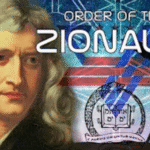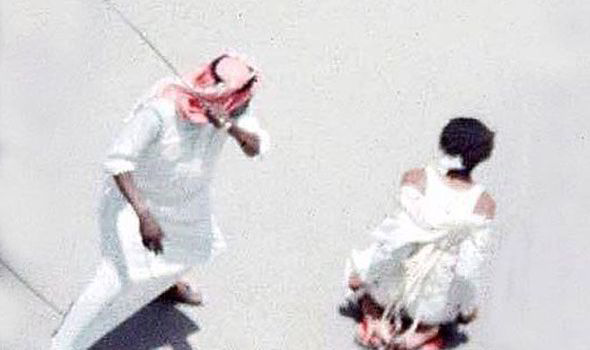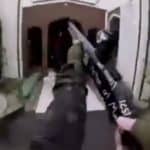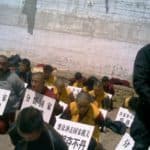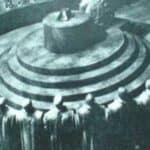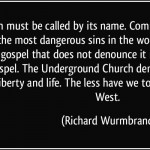A prisoner gets publicly executed in ‘chop chop square’ in Riyadh, Saudi Arabia.
WND | 12/15/2014
Unconfirmed reports of a new decree imposing the death penalty on anyone caught smuggling Bibles into Saudi Arabia has many Christian ministries and support groups on edge.
Practicing any religion other than Islam has long been illegal in the desert kingdom, and that includes rules against foreigners bringing in any type of religious material that does not conform to the royal family’s strict Wahhabi brand of Sunni Islam. Foreign nationals living in Saudi Arabia are often detained for purely religious reasons, sometimes resulting in deportation.
But applying capital punishment, which in Saudi Arabia often means death by beheading, to Bible smugglers would signal a new level of persecution even for the Saudis.
Several Christian missionaries said they were seeking to confirm a recent report by the Virginia-based Heart Cry Missionary Society that a new death penalty law has been adopted citing an “official statement” in Arabic on a Coptic Christian website called CoptsToday.
The law reportedly extends to the importing of all illegal drugs and “all publications that have a prejudice to any other religious beliefs other than Islam.”
No response from Saudi embassy
WND made three requests via phone and email to Saudi Arabia’s U.S. Embassy press officer in Washington asking for confirmation or denial of the report. A woman at the Saudi Embassy who identified herself only by her first name, Cecelia, said she made sure all three emails were received by press officer Nail al-Jubeir. He has not responded.
“Sometimes they don’t want to say anything (to the media),” Cecelia told WND.
Saudi sources at the United Nations also refused to confirm or deny the report.
According to the 2005 International Religious Freedom Report, cited on the U.S. State Department’s website, Saudi Arabia has one of the worst records in the world on religious liberty.
The Saudi regime, considered an important ally of the United States, which annually showers the Islamic country with billions of dollars worth of military aid, allows no churches to function as independent Christian entities on its soil. The kingdom also persecutes foreign workers living in the country who are not of the Islamic faith. Up to 1 million Christians, many of them from the Philippines, Ethiopia and Egypt, live in Saudi Arabia as guest workers.
The 2005 report cited the following facts with regard to possession of Bibles or other “illegal contraband” in the Saudi kingdom:
“Customs officials routinely open mail and shipments to search for contraband, including Sunni printed material deemed incompatible with the Salafi tradition of Islam, Shi’a religious materials, and non-Muslim materials, such as Bibles and religious videotapes. Such materials are subject to confiscation, although rules appear to be applied arbitrarily.
“Sunni Islamic religious education is mandatory in public schools at all levels. Regardless of which Islamic tradition their families adhere to, all public school children receive religious instruction that conforms to the Salafi tradition of Islam. Non-Muslim students in private schools are not required to study Islam. Private religious schools are not permitted for non-Muslims or for Muslims adhering to non-Salafi traditions of Islam.”
Raids on churches
Raids on underground churches are a continuous threat in Saudi Arabia, and only some of the raids get leaked to the Western religious press.
As recently as September, Saudi officials detained 30 Christians for worshiping in an underground house church, reported BosNewsLife.
The same news agency reported that 53 Ethiopian Christians, mostly women, were detained in 2013 after attending a worship service in a private home.
And in August 2012, the Saudi kingdom deported 35 Ethiopian Christians after they had been jailed for nearly nine months for holding a private prayer vigil, BosNewsLife reported.
WND reported last year that Saudi Arabian Airlines refused to sell tickets to Jewish passengers because Jews are not allowed in the country.
World Watch List, published by Open Doors Ministry, ranks Saudi Arabia as the world’s sixth most repressive country for Christians in its 2014 report. The only countries listed as more hostile to Christianity are Afghanistan, Iraq, Syria, Somalia and North Korea. Syria and Iraq surpassed Saudi Arabia on the list this year because of the rise of the Islamic State, also called ISIS. Of the world’s 14 most repressive nations, 13 of them are Islamic regimes or have major territories controlled by Muslim rebels. North Korea is the lone exception with its communist dictatorship.
“The open practice of any religion other than Islam is forbidden here, and conversion to another faith is punishable by death,” says the Open Doors in its description of Saudi Arabia. “Most Christians are ex-pats from Asia or Africa. Muslim-background believers run the risk of honor killing if their faith is discovered. Yet a small but growing number of Muslims are coming to Christ and sharing their faith on the internet and satellite TV.”
In 2012, the grand mufti of Saudi Arabia, the nation’s highest official of religious law, declared that all churches across the Middle East should be destroyed. The Society of the Revival of Islamic Heritage asked Sheikh Abdul Aziz bin Abdullah to clarify his controversial statement and he reportedly replied that it is “necessary to destroy all the churches of the region.”
Grand Mufti Sheikh Abdul Aziz bin Abdullah seeks destruction of churches in Middle East.
He cited the prophet Muhammad, who said the Arabian Peninsula is to exist under only one religion.
President Obama met with Saudi King Abdullah on March 28 at the king’s desert camp 35 miles northeast of Riyadh. Following that meeting, Obama took heat from human rights activists for not bringing up the persecution of Christians and other minorities during his talks with the Saudi leader, despite a letter from members of Congress urging him to do so.
Todd Nettleton, director of public relations for Voice of the Martyrs, said that ministry, which ministers to persecuted Christians worldwide, had heard that a death penalty law had been proposed for Bible smuggling, but he was still trying to confirm whether it had been approved by the king.
“We did have some information come to us about 10 days ago that this was in the process,” Nettleton said. “We just have not been able to confirm if the proposed law has become the law of the land.”
Joel Richardson, author of “The Islamic Antichrist” and a documentary filmmaker who has recently spent a lot of time in the Middle East filming “End Times Eyewitness,” said it would not be surprising if such a decree were enacted in the Saudi Kingdom, which has a history of brutal treatment of religious dissidents.
Joel Richardson is a Bible teacher, author and documentary filmmaker.
“This is evidence of the fact that the Saudi government is afraid of the impact of Christianity,” Richardson said. “If Muslims were truly confident that their religion was true, they wouldn’t be afraid of people reading the Bible.”
Muhammad instructed Muslims to read Bible
Muhammad, to the surprise of many Christians, instructed his followers that, if they have doubts about the validity of his teachings, they should compare them to the teachings found in the Bible (see Surah 10:94-95; 16:43).
And many Muslims may be taking him up on that challenge, Richardson said.
His new documentary film, “End Times Eyewitness,” explores recent reports of revival in several Middle Eastern Muslim nations.
“For the past 10 years, we’ve seen one of the fastest-growing Christian movements in the world going on in the country of Iran, and in Egypt we’re getting profound testimonies about revivals as we are in the north of Iraq,” he said.
we’re getting profound testimonies about revivals as we are in the north of Iraq,” he said.
The prophecy of Isaiah 19 speaks of revival breaking out in large parts of the Muslim world including Egypt and the larger Middle East. The fact that it is now occurring is significant, Richardson believes.
“You’ve got Chaldean Catholics, Orthodox Assyrians, and obviously those are the largest numbers of Christians. And, of course, in Egypt they have the Coptic Christians,” he said. “What we’re seeing in Egypt, however, is the Catholics and Orthodox and Evangelicals coming together to pray together. Under persecution, a lot of the Christians are coming together. The Coptic priests are coming together and praying for the greater body of believers.”
Besides being staunch enemies of Christianity in all its forms, Richardson said members of the Saudi royal family are among the most hypocritical Muslim leaders in the Middle East.
Saudi Prince al-Waleed bin Talal, a wealthy jet-setter who owns a significant stake in Fox News among many other Western companies, came to the United States about five years ago with a message that more tolerance of Islam was needed in the U.S.
“He lectured us that we need to be more tolerant of Islam,” Richardson said. “We always get these lectures by Muslim leaders, yet here we are in the heart of Islam, in Mecca and Medina, and they’re making it illegal simply to bring a Bible into the country. Again, the hypocrisy of the Muslim world is on full display, and people need to know this.”
No quid pro quo on interfaith prayer
WND reported last month that the Washington National Cathedral hosted its first-ever Muslim-led prayer service, a gesture that many American Christians are still waiting to see reciprocated.
“They always welcome our overtures, but they never reciprocate,” Richardson said.
WND contacted the imam, Ebrahim Rasool, who led the Nov. 14 jummah service at the National Cathedral and asked him if he would work to reciprocate with a Christian-led prayer service in a mosque. Rasool did not respond to WND’s repeated phone calls and emails.
Richardson’s film also explores the historical and prophetic significance of Christian martyrdom. He sees the blood of the martyrs as the seed of the Christian church.
“And even if the Saudis make it illegal to bring in a Bible, the new technologies make it impossible to be stopped, and people will continue to smuggle Bibles,” he said. “And with addition by subtraction, i.e. martyrdom, it becomes multiplication. Through martyrdom, the church grows, and that’s how it’s always been, and we’re not afraid of losing our lives. The word of God is sharper than any two-edged sword.”
Saudi Arabia has beheaded more people than ISIS over the last two years, most of them for criminal offenses, in what’s known as “chop-chop square,” a public space in Riyadh. A minor theft charge can result in the amputation of one’s hand, according to Saudi Arabia’s strict adherence to Shariah law. A 2013 article in London’s Daily Express reported that a man was scheduled to have his spinal cord severed for paralyzing a friend when he was 14 years old.
“If they’re going to execute people now for smuggling Bibles, then there you have the fulfillment of Revelation 6:9,” Richardson said.




